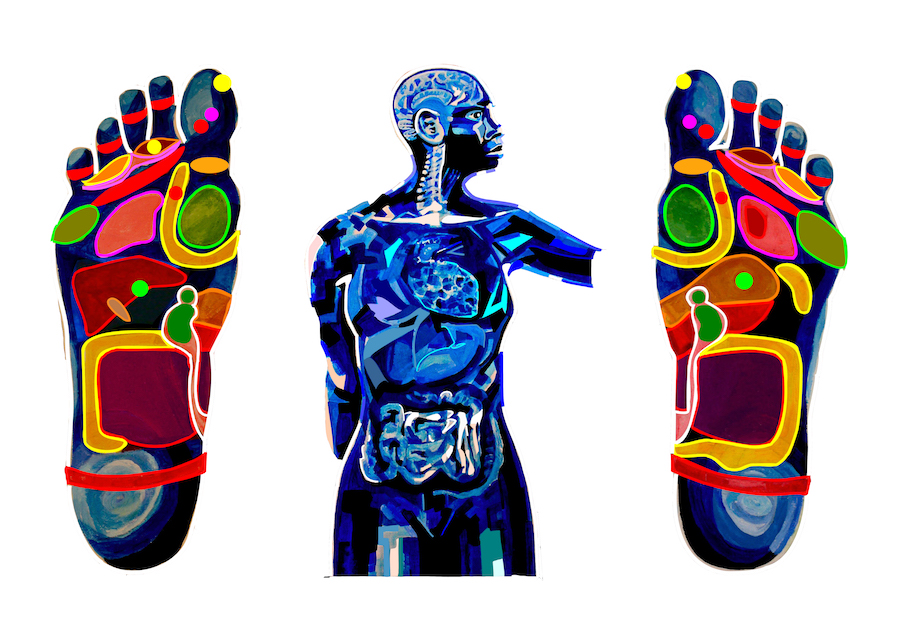Reflexology – what’s it all about?
Reflexology is a complementary therapy that has been gaining ground over the last twenty or so years, moving slowly from being viewed as slightly odd to having a level of acceptance within the NHS. In fact, a survey carried out back in 2009 (ten years ago!) indicated that reflexology was available in 62% of all UK cancer units.
As a complementary rather than an alternative therapy, it is usable alongside your standard medical health care to help to make the most of your health by relaxing and de-stressing your body.
What is Reflexology?

Reflexology is a complementary therapy that is based on the philosophy that different points and areas on the feet, lower leg, hands, face and ears correspond with different areas of the body. The theory is that working these points or areas can help aid relaxation, improve mood, release tension, enhance sleep and can generally help improve wellbeing; allowing us to cope better with the stresses that life can bring. Receiving reflexology is very easy, at the very most only shoes and socks need to be removed. The reflexologist will apply specific moves and put pressure on certain points of the feet, hands ears or face to help your body rebalance and relax. Occasionally there will be areas, especially those that are out of balance, that will be a bit uncomfortable but mostly the experience will be enjoyable and relaxing.
Small research studies show that reflexology can help with all sorts of pain, sleep and even improve balance. Pain can be highly debilitating however it is thought that non-painful touch therapies like reflexology can interrupt the pain signals to close the gate to the brain thus lessening the brain’s response. This is called the gate control theory. Several studies have revealed reduced pain when reflexology is used even in where there are extreme pain levels for example in cancer care.
Sleep is essential to health and wellbeing, so much so that it is beginning to be a cause for concern within the NHS where hospital-based patients are finding getting a good night’s sleep problematic. There have been several research studies in using reflexology to aid sleep in a variety of patient groups and in all of the studies reflexology has been shown to make a difference to the sleep process.
 Balance is very important as it helps us to keep upright and decrease falls, thus reducing hospitalisation. A small study of a group of women over sixty found that when compared to no treatment, reflexology increased postural stability and sway, both of which are measures of balance.
Balance is very important as it helps us to keep upright and decrease falls, thus reducing hospitalisation. A small study of a group of women over sixty found that when compared to no treatment, reflexology increased postural stability and sway, both of which are measures of balance.
As reflexologists, we acknowledge that every person is unique and the only way to really know if reflexology will help you is to try it. When looking for a Reflexologist, we suggest you go to our website at www.aor.org.uk, where you can pop in your postcode and find a well-qualified and insured MAR status reflexologist local to you.





















